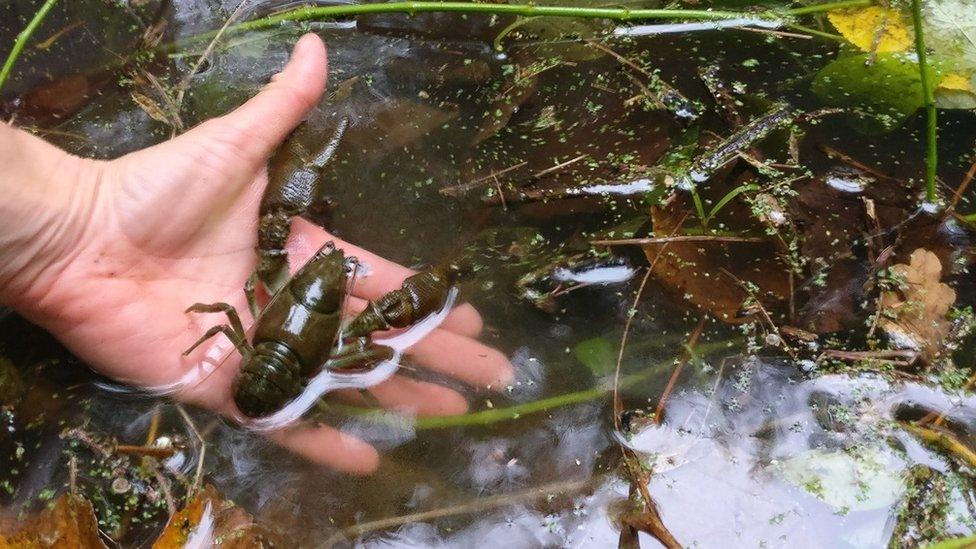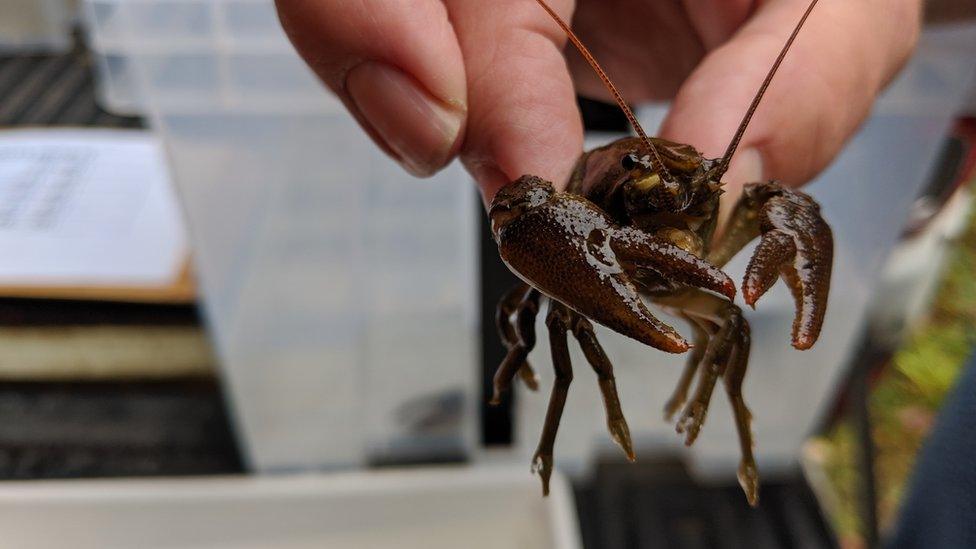Gloucestershire crayfish plague fear after native species found dead
- Published

White-clawed crayfish are an endangered species
People are being urged to stay out of rivers due to the risk of spreading crayfish plague after some white-clawed crayfish were found dead in two brooks.
The Environment Agency said the native crustaceans died in the Cinderford and Soudley brooks in Gloucestershire.
Fisheries technical specialist Chris Bainger said: "It's yet to be confirmed but we think from the evidence we've seen we have an outbreak."
The white-clawed crayfish is a UK protected species as it is in decline, external.
Mr Bainger added: "We've had a few of them [outbreaks] over the years spread over the catchment but this is the first in that specific area.
"It's an area that did have a good population of the native white-clawed crayfish," he added.
The plague is transferred through the water and was brought into the UK by the American signal crayfish.
Although it is not fatal to the invasive species or to humans or animals, it has killed off white-clawed crayfish to the point where they are now an endangered species.
"The whole of the Forest of Dean is at risk because on a day you might trudge through the Soudley Brook and before you know it you're in another watercourse quite quickly," Mr Bainger warned.
"You might still have dirty boots or your dog's been having a run around in that stream. It's important to think about that bigger scale."

Follow BBC West on Facebook, external, Twitter, external and Instagram, external. Send your story ideas to: bristol@bbc.co.uk , external
Related topics
- Published23 April 2021

- Published5 November 2019
